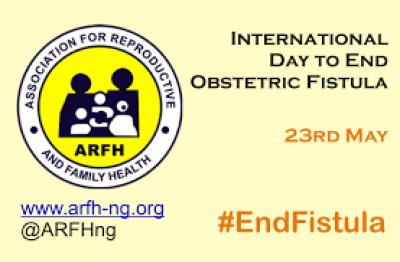
Sunday, 23 May 2021: It’s easy to ignore things you don’t know anything about. Obstetric fistula is one of those things. But it’s a devastating childbirth injury to women, who experience it, usually lethal to unborn babies and – here’s the encouraging news – it is not only treatable but largely preventable.
Obstetric fistula is a hole in the birth canal caused by protracted, obstructed labour. Left untreated, it can lead to infection, disease, and infertility. Moreover, women leak urine and faeces, which may cause her husband to abandon her, her community to shun her and employment opportunities to vanish. She is resigned to a life of misery and isolation.
In 2003, the United Nations Population Fund, (UNFPA), and its partners launched the global Campaign to End Fistula, a collaborative initiative to prevent fistula and restore the health of those affected by the condition. In 2012, the UN announced that it would observe International Day to End Obstetric Fistula on May 23 each year, starting from 2013.
According to UNFPA, “Obstetric fistula has all but disappeared in rich countries but persists in poorer countries – an estimated 500,000 women and girls live with the condition. Young bodies not ready for pregnancy and childbirth in the case of child marriage or unintended pregnancy are especially vulnerable.
“And COVID-19 has exacerbated the problem with spikes in child marriages – a violation of bodily autonomy – disruptions to family planning and sexual and reproductive health services and inequities in health care systems.”
UNFPA has supported more than 120,000 surgical repairs; the injury can be prevented by reproductive health care, family planning, skilled birth attendants and emergency obstetric care. It can be treated with reconstructive surgery, though many women and girls don’t know about treatment or can’t access it or can’t afford it.
It can also be avoided by delaying the age of first pregnancy; the cessation of harmful traditional practices; and timely access to obstetric care.
Unfortunately, the current pandemic affects all these preventive measures in developing countries where obstetric fistula still exists.
UNFPA predicts that “more women and girls will be at risk of obstetric fistula due to overburdened health systems. In addition, fistula repairs have widely been suspended as they are deemed to be non-urgent and hospitals have diverted resources to care for patients with COVID-19.
“Besides, it is expected that 13 million more child marriages could take place by 2030 than would have otherwise. Families are more likely to marry off daughters to alleviate the perceived burden of caring for them, especially in the anticipated economic fallout of the pandemic.”
Due to all these reasons, an increase in cases might occur and new strategies will be required in the post-COVID-19 recovery period to address the expected backlog of cases.
Now more than ever, it is important to call on the international community to use the International Day to End Obstetric Fistula to significantly raise awareness and intensify actions towards ending obstetric fistula, as well as urging post-surgery follow-up and tracking of fistula patients.
Fundraisers, media announcements and mobile van campaigns driven by health professionals are a few of many events and activities that promote the International Day to End Obstetric Fistula.
The theme of this year’s observance is “Women’s rights are human rights! End fistula now!” Everyone deserves a life of dignity, and the day serves as a reminder that we cannot ignore such a promise.






















